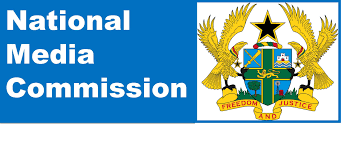Editorial
Maintain a healthy lifestyle to avoid kidney disease
A startling 13.5 percent of people in the Ashanti region suffer from chronic kidney disease, Dr. Suleiman Suabil, a physician specialist at the Obuasi AngloGold Hospital, has revealed.
As a result, 17.6 percent of patients in the area need dialysis.
What makes it so worrying is that despite the fact that the disease is a silent killer, many people do not know their kidney status until it is too late.
“Most people admitted to medical wards have chronic kidney disease, but only one out of ten people are aware of their kidney status,” he stated at the World Kidney Day celebration hosted by AngloGold Ashanti in the Obuasi.
He revealed that between 10 and 14 percent of people worldwide suffer from kidney disease, with Sub-Saharan Africa accounting for 14 percent and Ghana for 13.5 percent.
Fortunately, some significant causes of kidney illness have been established, in contrast to breast cancer, the cause of which medical experts are still trying to determine.
The most prevalent causes of chronic kidney disease, according to specialists, are diabetes and high blood pressure, but other factors that have been linked to the condition include poor lifestyle choices, excessive alcohol use, smoking, poor food, misuse of herbal medications, inactivity, and excessive weight gain.
To be forewarned is to be forearmed therefore to address this, preventive healthcare interventions must be prioritised.
In order to prevent kidney disease, which is on the rise in Ghana, we as individuals should be health conscious, refrain from abusing herbal medications, get regular checkups, control blood pressure, manage blood sugar, eat a healthy diet, exercise frequently, stop smoking if you do, and refrain from abusing painkillers.
Furthermore, health institutions must regularly plan outreach programmes to provide people with the knowledge they need to safeguard their health, seek medical attention when necessary, and guarantee that communities receive high-quality healthcare at their doorsteps.
Live a healthy lifestyle to extend your life because kidney disease is a silent killer.
Editorial
NMC must enforceguidelines to protectviewers, especially minors

Dear Editor,
I WRITE to express my growing concern about the increasing display of adult content on some television stations in the country.
These programmes, often aired during hours when children are most likely to be watching, pose a serious threat to their moral development and general well-being.
Television remains one of the strongest influences on young people, and stations have a responsibility to ensure that their content reflects the values we seek to instil in our society.
Unfortunately, some channels appear to prioritise sensationalism and profit over public safety and decency.
Such content not only exposes children to material they are not prepared to process but also undermines parents’ efforts to guide their behaviour.
I call on the National Media Commission (NMC) and other regulatory bodies to intensify monitoring and enforce stricter guidelines to protect viewers, especially minors.
Broadcasters must be reminded of their duty to promote responsible and wholesome programming.
Our airwaves should uplift, educate, and inform — not endanger the moral fabric of the next generation.
Eugene Ampiaw,
Accra
Join our WhatsApp Channel now!
https://whatsapp.com/channel/0029VbBElzjInlqHhl1aTU27
Editorial
Balancing faith,discipline at Wesley Girls SHS
Dear Editor,
I AM writing to share my thoughts on the ongoing issue at Wesley Girls’ Senior High School, which has attracted national attention after the Deputy Attorney General released a statement in court.
The matter is about whether Muslim students are being denied the right to freely practice their religion, and whether they are being compelled to follow practices that go against their faith.
To me, this is not just a legal issue but a question of fairness and respect in our schools.
While the Constitution guarantees every student the right to practice their faith, schools also have traditions and rules that must be respected. As the saying goes, “When you go to Rome, you do what Romans do.” If a teacher is teaching, it is not right for a student to suddenly leave for prayers. That disrupts learning.
Instead, schools should provide a clear time and place for worship, so that students can honour their faith without disturbing academic work. There is time for everything; time to learn, and time to pray.
Wesley Girls SHS can continue to uphold its Methodist heritage while also respecting the rights of Muslim students.
This compromise will protect unity and ensure that our schools remain places of both discipline and inclusion.
Princess Wonovi
Accra
Join our WhatsApp Channel now!
https://whatsapp.com/channel/0029VbBElzjInlqHhl1aTU27






